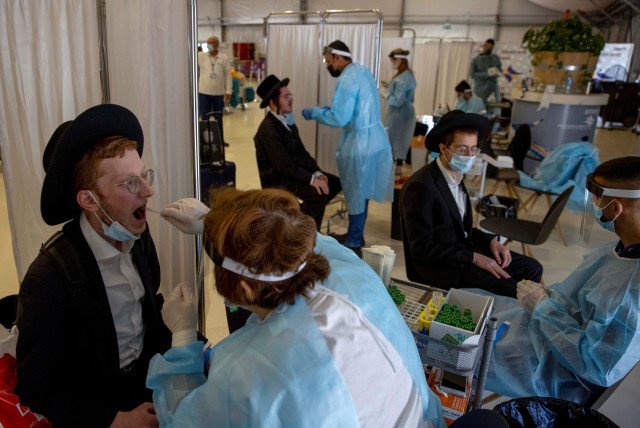New intervention protocol for haredi mothers of children with ADHD

Different education, lifestyles, and minimal exposure to media make different protocols necessary.
Because of their different lifestyle and education and minimal exposure to the media, the ultra-Orthodox (haredi) population often needs different techniques from healthcare staff to promote their health. A higher number of haredi Jews avoid taking their children for certain vaccinations and going for certain preventive health checks; they eat too much cheap junk food; and they are reluctant to undergo abortions even if the fetus is seriously defective.
The haredi community, which is growing significantly in numbers due to their high birth rate, poses unique challenges as its conservative nature often deters members from using public mental- health services, and this leads to potential negative health outcomes.
Attention-deficit hyperactivity disorder (ADHD) is a prevalent neuro-developmental health condition affecting around five to seven percent of children and adolescents, with its behavioral manifestations impacting family members, especially mothers.
Researchers at the School of Occupational Therapy at the Hebrew University (HU) have now unveiled an “intervention-mapping protocol” for haredi mothers of children with ADHD. The study identified major factors that determine changes in health behavior, addressing issues such as reducing stigma about having children with ADHD; increased knowledge about the disorder, awareness of what school systems can do to help, better advocacy skills, and mothers also taking care of themselves.
Prof. Adina Maeir and doctoral student Jennifer Budman have developed a culturally sensitive, psychological health-promotion intervention protocol that sheds light on the major factors that determine changes in health behavior.
They have just published their study in the journal BMC Public Health under the title “Development of a psychological health promotion intervention for ultra-orthodox Jewish mothers of children with ADHD using the intervention mapping protocol.”
How intervention was developed
The intervention, developed by mixing various methods together, including theoretical models for behavior change, and offering new ones, involved qualitative content analysis of four focus groups comprising 25 participants. Written material about ADHD in both the general population and the ultra-Orthodox community informed the systematic derivation of intervention components.
Key intervention strategies included group settings, information on health consequences, social support, and re-attribution (a technique that tests automatic thoughts and assumptions by considering other possible causes of events. This helps when clients view themselves as the cause of problem events), active learning, goal setting, and promoting an identity associated with the desired behavior change.
The “pioneering approach,” they said, not only provides a culturally relevant solution for the well-being of ultra-Orthodox Jewish mothers in coping with ADHD in their children but also sets a precedent for future research in creating tailored interventions for diverse and culturally specific communities.
Quantitative feedback from mothers confirmed that they felt what they were exposed to was relevant, effective, and an appropriate intervention, with the content-validity index scores high.
This new study not only provides a culturally relevant approach to addressing the psychological health of ultra-Orthodox Jewish mothers dealing with ADHD in their children but also sets a precedent for future research in developing tailored interventions for diverse and culturally specific communities.
Jerusalem Post Store
`; document.getElementById("linkPremium").innerHTML = cont; var divWithLink = document.getElementById("premium-link"); if (divWithLink !== null && divWithLink !== 'undefined') { divWithLink.style.border = "solid 1px #cb0f3e"; divWithLink.style.textAlign = "center"; divWithLink.style.marginBottom = "15px"; divWithLink.style.marginTop = "15px"; divWithLink.style.width = "100%"; divWithLink.style.backgroundColor = "#122952"; divWithLink.style.color = "#ffffff"; divWithLink.style.lineHeight = "1.5"; } } (function (v, i) { });

